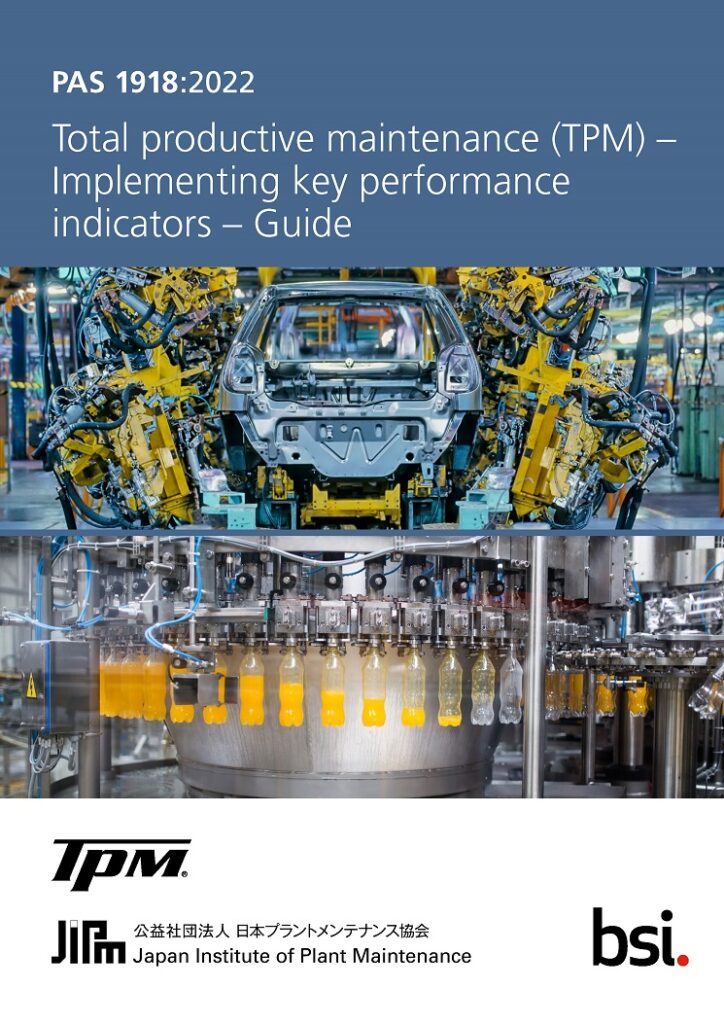PAS 1918 for TPM
BSI published the PAS standard for TPM(PAS 1918) on July 31, 2022, based on a request from JIPM.

1. background on the development of PAS 1918
Originally proposed by JIPM in 1971, TPM has now been adopted and spread throughout various manufacturing industries worldwide. In addition, the requirements of IATF 16949 (Automotive Industry Quality Management System Standard) stipulate the use of TPM, and it is also an effective means of “quality management” and “productivity improvement” for the entire supply chain in the automotive industry.
The purpose of this PAS is to clarify the concept of TPM, to help organizations implement TPM, and to deepen a common understanding of TPM. It is important to continue TPM even after implementation, and this PAS is also effective for organizations that have already implemented TPM.
JIPM sponsored the development of the standard, and several overseas organizations participated in its development.
[Organizations that participated in the development of PAS 1918 (in no particular order)]
Confederation of Indian Industry(CII)
ETI GIDA San. ve Tic. A.S.
Exagon Experts
OdeXa
Owens Corning
SMMT Industry Forum Limited
Tetra Pak
2. about PAS 1918
TPM is a management system for equipment management and productivity maintenance and improvement in the discrete parts and the process industries, mainly in automated lines, with the aim of reducing losses to zero. This PAS focuses on the basic concepts of TPM and related KPIs in implementing TPM, and serves as a guide to TPM for manufacturing plants and equipment.
The PAS is applicable to all organizations in the discrete parts and process industries. It is intended for those involved in the operation and maintenance of plants and equipment, as well as those working in manufacturing, quality, maintenance, production, and supply chain.
3. future development of PAS 1918
TPM is a management system for equipment management and productivity maintenance and improvement in the discrete parts and the process industries, mainly in automated lines, with the aim of reducing losses to zero. This PAS focuses on the basic concepts of TPM and related KPIs in implementing TPM, and serves as a guide to TPM for manufacturing plants and equipment.
TPM, which developed from a philosophy of prevention to address the problems of aging and high functionality of equipment, has a rich array of specific and various analysis methods backed by the experience of more than 3,500 domestic and overseas companies and factories.
In recent years, cost management that looks at the entire life cycle of equipment has become increasingly important, and the TPM concept, which has made vector alignment between the policies of corporate top management and management indicators and activity indicators on the shop floor an activity requirement, is being used as an easy-to-understand method.
In addition, TPM is a very effective concept in terms of corporate sustainability, and through PAS 1918, we aim to promote the correct use of TPM throughout the world.
5. How to get PAS 1918
You can purchase directly from BSI SHOP (BSI UK website).
BSI shop